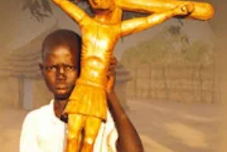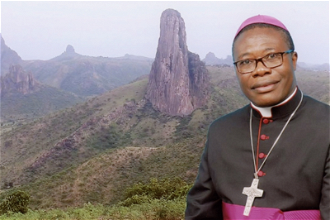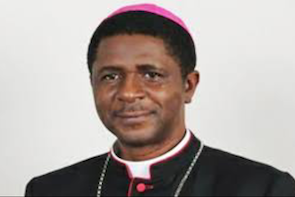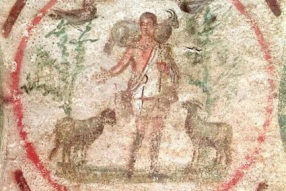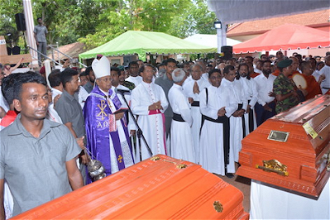Cameroon Faith leaders call for mediated peace talks
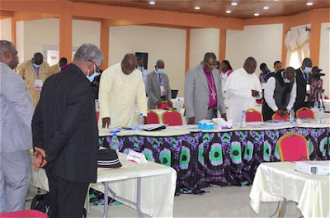
Cameroon faith leaders are calling on the government of President Paul Biya to accept the mediation of a third party to resolve the conflict in Cameroon. The Norwegian Refugee Council describes the violence there as the world's most ignored crisis.
The faith leaders' statement marks a turning point; previously, they have been less overt in urging action from the Yaounde regime. It is also significant that senior representatives of so many religious groups have come together for a two-day workshop on the crisis. Analysts say their meeting plays an essential role in giving voice to the concerns of the unarmed civilians who have been side lined by the rise of secessionist militia factions.
In a statement, the leaders from Catholic, Protestant, Presbyterian, Evangelical, Pentecostal, Methodist and Muslim communities urged the government to concede that an impartial third party was needed to mediate negotiations to stop the fighting.
"The costs and consequences of armed conflict in Anglophone Cameroon and the Boko Haram insurgency in the North are becoming increasingly unbearable for the local populations who are paying a high price for these conflicts," the statement read.
The unrest began in 2016, when the Francophone-dominated regime imposed French law and judges on the English Common Law legal system in the North west and South West regions. The Biya government also sent French-speaking teachers to instruct pupils using the Francophone education system, replacing the British curriculum and exams. Human rights watchdogs reported that the government responded to peaceful Anglophone protests with disproportionate violence, giving rise to a secessionist movement and an increasingly militarised rebel response. The conflict has led to the polarisation of opinion in the regions, with armed separatists demanding international recognition for the nation of Ambazonia.
President Biya has repeatedly assured diplomats that Cameroon alone must address its internal issues. In October 2019, the government organised a Major National Dialogue as a result of diplomatic pressure. However, many representatives of the Anglophone regions were afraid to attend in case they were arrested. Amnesty International has reported that the Biya regime routinely detains opposition politicians. Anglophone leaders denounced the meeting as lacking legitimacy, and the security situation has deteriorated rapidly since then.
The United Nations estimates that three million people out of an Anglophone population of six million are directly affected by the violence. A rebel-led boycott of schools has kept 700,000 children out of education for the past four years. Schools have been burned by both sides, children and teachers have been threatened and kidnapped, and in October, seven pupils were killed in an assault on a school in Kumba. The UN says 700,000 people have fled their homes due to attacks, and 60,000 are now refugees in neighbouring Nigeria.
An independent NGO, the Swiss Centre for Humanitarian Dialogue, has offered to host negotiations. However, the government and some secessionist factions have held back from committing to peace talks, fearing they will be seen as conceding strategic ground. They have also ignored calls for a Covid-19 ceasefire from the UN Secretary General and in an open letter from Nobel Laureates and other world leaders.
In October 2018, Cardinal Tumi, the Archbishop Emeritus of Doula, tried to organise a gathering of faith leaders representing moderate civil society views on the Anglophone crisis. However, the Biya regime prevented the meeting, thereby denying moderate civil society a chance to make their views heard. In early November, Cardinal Tumi, age 90, was briefly kidnapped and interrogated by Ambazonian militia.
The faith leaders' call for mediated talks may be given extra force in January when the US Congress debates a bipartisan resolution on Cameroon that would place targeted sanctions on government and militia figures implicated in human rights abuses.
For more information on the Anglophone crisis, including ways in which you can put pressure on the UK and US governments to use their diplomatic leverage to encourage mediated peace talks, please visit http://cameroonpeacejustice.ca



